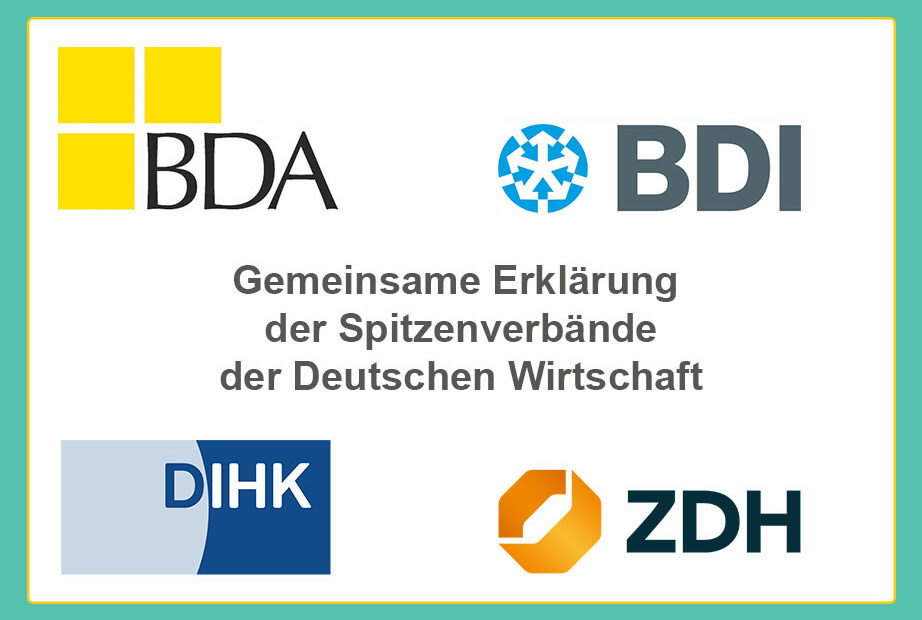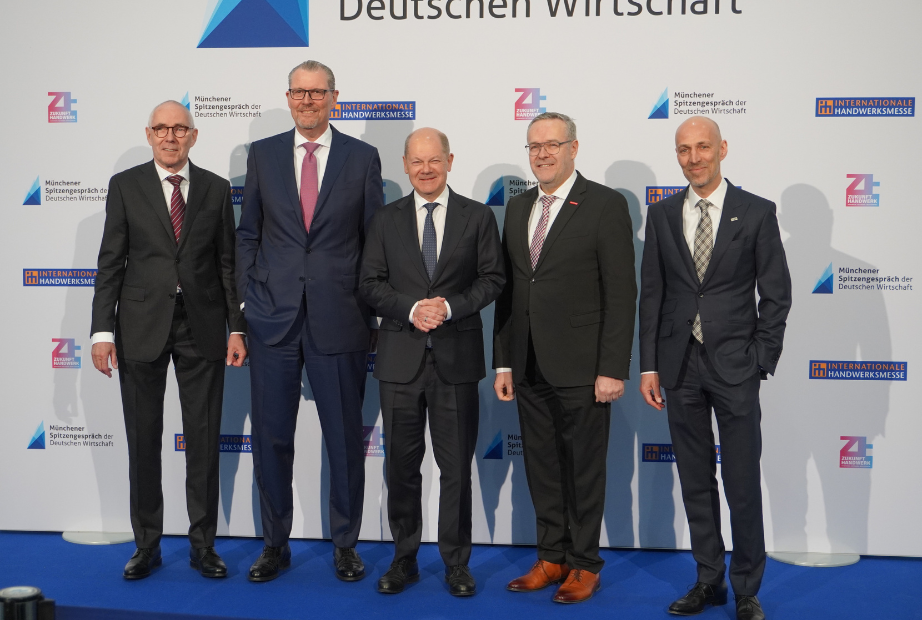News at a glance
6. May 2025
Employers' President Dr. Rainer Dulger on the start of the black-red coalition...
5. May 2025
Employers' President Dr. Rainer Dulger on the new Federal Minister of Labour Bärbel Bas...
30. April 2025
Employer President Dr. Rainer Dulger comments on the current labour market figures...
9. April 2025
Employers' President Dr. Rainer Dulger comments on the coalition agreement presented today by the CDU/CSU and SPD...
2. April 2025
In a joint statement, more than 100 associations appeal to the coalition partners to focus on the economy in the negotiations.
14. March 2025
Joint declaration by the leading associations of German industry on the Munich...













